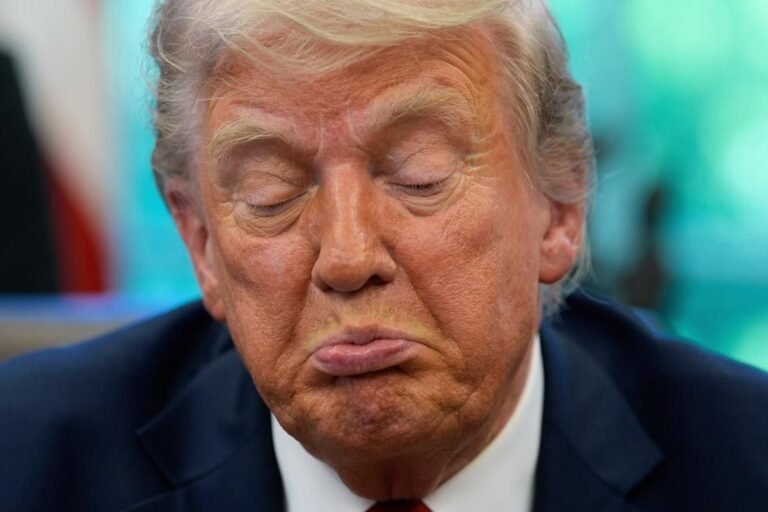President Trump now appears to be a no on nascent GOP plans to consider letting tax cuts on some of the richest Americans expire.
“I think it would be very disruptive because a lot of the millionaires would leave the country,” Trump told reporters Wednesday after being asked about the idea for a “millionaire tax.”
“That would be bad,” he added.
There is little evidence to support Trump’s claim, as the proposal would simply return rates for these taxpayers to pre-2017 levels and top income rates in other nations are often much higher.
But it’s a clear political signal that pushback from wealthy GOP donors and other Americans has put an already long-shot GOP idea even further on the ropes.
“Well, that didn’t last long,” wrote Greg Valliere of AGF Investments in a note to clients Thursday morning, noting that the move is part of “a furious GOP battle over what will be in the tax bill — or bills — that will start to come into focus in May.”
At issue is the current top tax rate of 37% for individuals earning more than about $640,000 a year — which was set in the 2017 Tax Cuts and Jobs Act. That rate is set to expire at the end of this year and would bump things back up to the 39.6% rate if no action is taken.
One idea is to let that expiration happen. Another idea under debate is for Congress to create a new tax bracket — perhaps for over $1 million in annual income — that would see a higher rate.
“It remains my base case expectation that a new higher tax bracket for millionaires will not be a part of a final bill,” Henrietta Treyz of Veda Partners noted to Yahoo Finance Thursday morning after Trump’s comments. She added that the idea remains under debate on Capitol Hill largely because losing that revenue “puts other issues in the cross hairs.”
Yet the latest comment from Trump comes amid a debate where many observers were surprised to see the GOP even discussing such a break from their tax-cutting orthodoxy. It was just the latest evidence of how much pressure lawmakers feel as they try to put together a bill that could include painful cuts and still result in a flood of new red ink.
Indeed, the larger context is a bill taking shape that appears set to send the national debt to even greater heights.
A framework that recently moved forward in Congress saw Republicans advance a plan that would allow adding $5.8 trillion in new deficit spending over the next decade.
It’s a plan that, as the deficit hawks at the Committee for a Responsible Federal Budget recently noted, would authorize more new debt than the American Rescue Plan, the 2017 Tax Cuts and Jobs Act, the CARES Act during the COVID-19 pandemic, and the Bipartisan Infrastructure Law combined.
Story Continues

